WantedDesign is a dynamic connector and amplifier for global design, fostering creative synergy and serving as a pivotal crossroad for the international design community across Latin America, North America, and Europe.
Q&A with Winners of Ready to be Implemented Award 2020: Nathan Agranat, Solène Lombard and Sylvie Nguyen for Biotopia
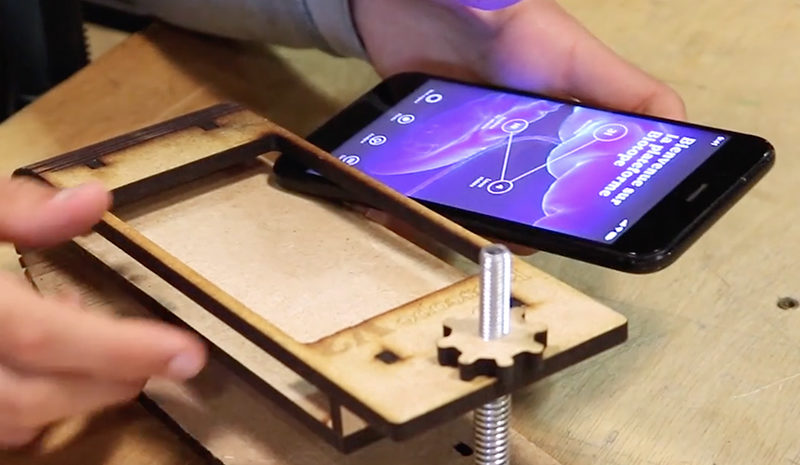
Q&A with Winners of Ready to be Implemented Award 2020: Nathan Agranat, Solène Lombard and Sylvie Nguyen for Biotopia
WantedDesign’s Ready to be Implemented Award for 2020 went to Nathan Agranat, Solène Lombard and Sylvie Nguyen of Paris Institue of Art and Design, Ecole Estienne (France) for their project Biotopia Pen, an app that allows the public to contribute to scientific research and raise awareness about plankton. We interviewed the winners of the Conscious Design Awards to learn more about their projects, their design interests and why the notion of “conscious design” is important to them.
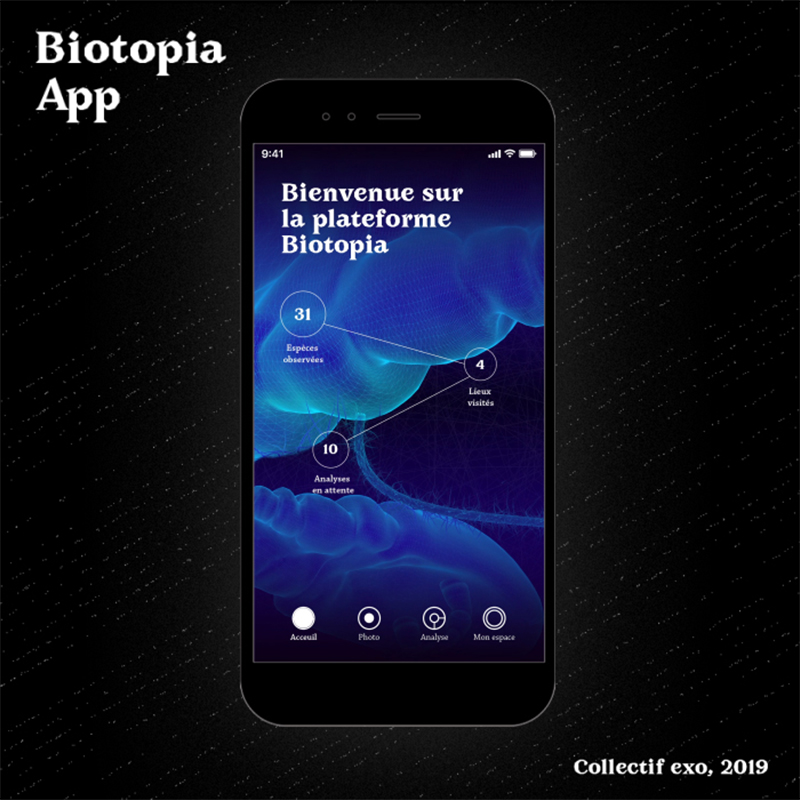
The Biotopia project allows the public to use digital devices as a means of contributing to scientific research and raising awareness about plankton. Our project offers a complete experience in three main stages. The first phase proposes to the participants to make their own plankton harvesting and observation kit, adapted to their smartphone in workshops or with the help of freely available plans. Then, with the help of a web app, the participants will be guided in the analysis of the collected samples and thus feed a common virtual plankton space. Finally, once this observation is completed, the public has access to an immersive space that offers the possibility of wandering through a living database. This database is fed in real time by all participants. It also brings together the community of users and scientists, functioning as a place for meetings and exchanges.

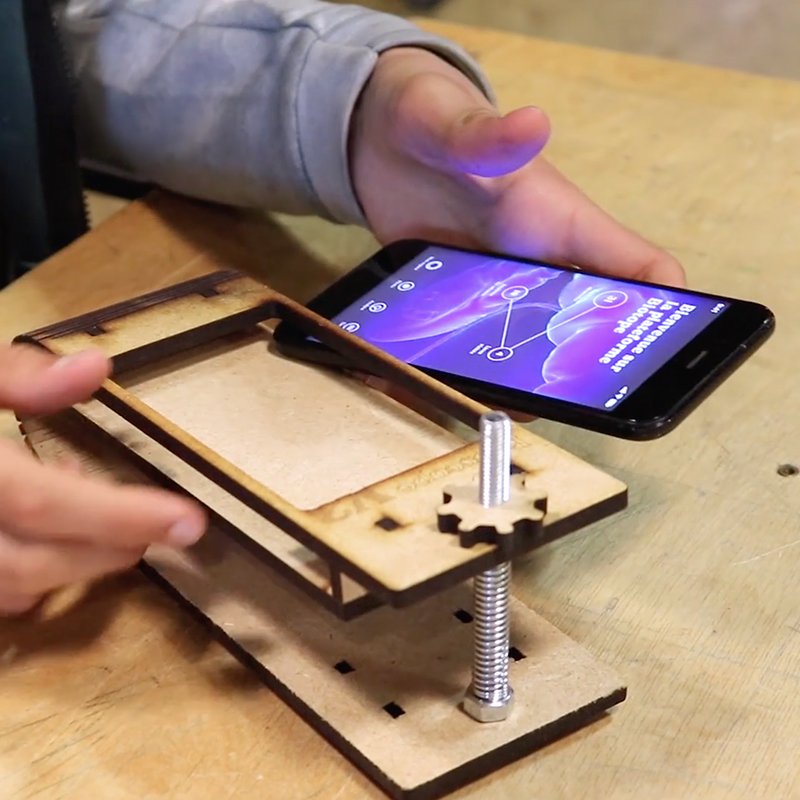
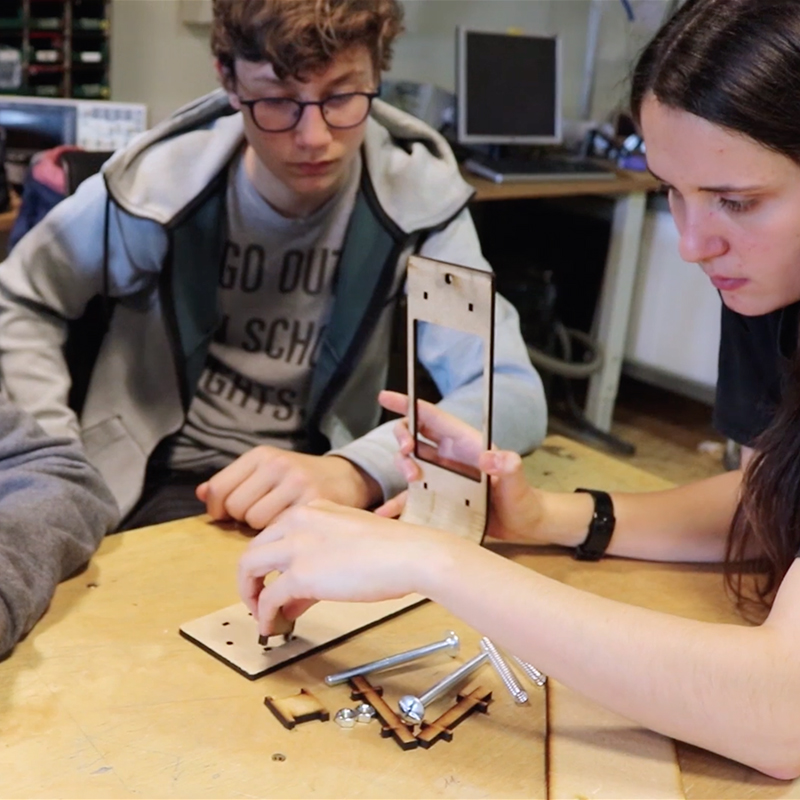
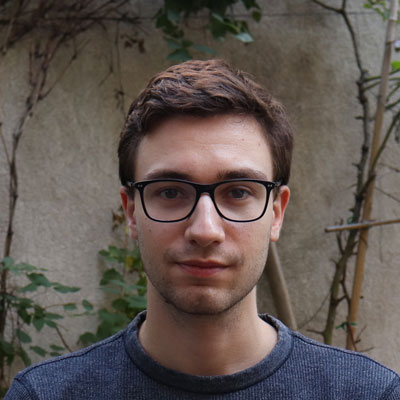
Nathan, tell us a bit about you, your school, and your area of study.
I’m a pure Parisian, I was born and I live in Paris. I’m a student in graphic and interactive design. I started with a diploma in printed graphic design and then I choose to open my skills to the digital and interactive design. The Master of design and digital creation was a good opportunity to learn more about this and to experiment with various supports (interactive installations, video games, motion design). I continue to experiment with different software and techniques all the time to be able to reuse it in my projects.
Tell us about the project you presented at WantedDesign Brooklyn.
The Biotopia project allows the public to use digital devices as a means of contributing to scientific research and raising awareness about plankton. Biotopia offers a complete experience in three stages : Making your own plankton observation kit, using a web app to analyze plankton and finally an immersive database in VR.
Why do you think your project specially appealed to the Jury?
Perhaps the way the project was carried out, in contact with the public and in a context of experimentation. The fact that it is quite concrete and is posed on a very real problem must also have had its role.
How would you like the project to evolve and potentially be implemented?
We would like to be able to work with structures that develop collaborative science projects. We pushed the project with our skills, but for it to really come to life we would need a whole part of database management and application development, which we still lack. Having the support of a structure would make it possible to obtain this help. It is also envisaged setting up workshops around this project to continue to improve the Exoscope.
How do you and your project relate to the notion of “conscious and responsible design”?
What is interesting in a diploma project is that we set ourselves the framework of our subject, not having to respond to an order allows us to look at subjects that are not necessarily exploited and that deserve our attention. In our case, we became interested very quickly in the issues of plankton over the course of various meetings and we very quickly understood why it was so important to talk about it and bring it to the forefront. We are not scientists but as designers we want to open our public to its problems but also to learn, because by doing the project we were interested in these subjects which were unknown to us. Our work is then to transmit this experience through our project.
What is next step for you? Do you have any other personal projects in which you are working on?
I’m coming to the end of my studies and I’m going to start working soon, if possible in the interactive design field. Besides that I hope to continue to present and develop the Biotopia project. I am also trying to push a project with a friend bases on the narration mixing augmented interactive reality and printing posters. It could also be a way to make awareness about scientific themes in a more attractive way.
What is your dream project?
I don’t have a specific project in mind, but the projects that make me dream the most are those that hybridize media to offer a new look or feel. That’s why I keep an eye on what’s coming out and what exists in terms of digital creation.
Nathan Agranat
Paris Institute of Art and Design Ecole Estienne – Design and Digital Creation
Saint-Ouen, France
http://nathanagranat.fr/

Solène, tell us a bit about you, your school, and your area of study.
My name is Solène, I’m a French student in art school. In June 2019 I was graduated from a master degree specialized in Design and Digital Creation at Paris Institute of Art and Design, Ecole Estienne.
Tell us about the project you presented at WantedDesign Brooklyn.
The Biotopia project allows the public to use digital devices as a means of contributing to scientific research and raising awareness about plankton. Biotopia offers a complete experience in three stages : Making your own plankton observation kit, using a web app to analyze plankton and finally an immersive database in VR.
Why do you think your project specially appealed to the Jury?
Our project offers a new experience to everyone. With a different approach, Biotopia invites non-scientists to discover, know and learn about the plankton (essential in our ecosystem).
How would you like the project to evolve and potentially be implemented?
We would like to continue to introduce our project to many people (festival, school, association, …) and why not work with associations or scientists to develop the exoscope and learn even more about plankton.
How do you and your project relate to the notion of “conscious and responsible design”?
We would like to continue to introduce our project to many people (festival, school, association, …) and why not work with associations or scientists to develop the exoscope and learn even more about plankton.
What is next step for you? Do you have any other personal projects in which you are working on?
The next step for me is to find a job in interactive design (3D, VR, interactive installation,…).
What is your dream project?
A wonderful VR project!
Solène Lombard
Paris Institute of Art and Design Ecole Estienne – Design and Digital Creation
France
https://www.behance.net/solenelomb944f
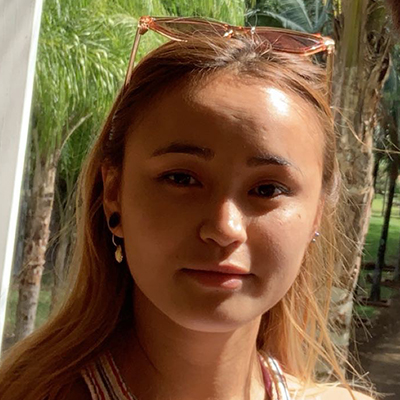
Sylvie, tell us a bit about you, your school, and your area of study.
Hi it’s Sylvie ! I´m 24 and I’m an interactive and graphic designer based in Paris. I’m passioned for interaction design, graphic design and multimedia. My versatile training HND in Multimedia allowed me to acquire technical and creative skills. Then, through my Master Degree specialized in Design and Digital Creation At the Paris Institute of Art and Design Ecole Estienne I was able to explore an experimental look of interaction design.
Tell us about the project you presented at WantedDesign Brooklyn.
The Biotopia project allows the public to use digital devices as a means of contributing to scientific research and raising awareness about plankton. Biotopia offers a complete experience in three stages : Making your own plankton observation kit, using a web app to analyze plankton and finally an immersive database in VR.
The Biotopia project allows the public to use digital devices as a means of contributing to scientific research and raising awareness about plankton. Our project offers a complete experience in three main stages. The first phase proposes to the participants to make their own plankton harvesting and observation kit, adapted to their smartphone in workshops or with the help of freely available plans.
Then, with the help of a web app, the participants will be guided in the analysis of the collected samples and thus feed a common virtual plankton space. Finally, once this observation is completed, the public has access to an immersive space that offers the possibility of wandering through a living database. This database is fed in real time by all participants. It also brings together the community of users and scientists, functioning as a place for meetings and exchanges.
Why do you think your project specially appealed to the Jury?
Few of us are familiar with plankton, yet they are an essential part of our ecosystem. Biotopia engages the user on so many levels and allows them to be actors of their own science and raising awareness about plankton. It’s a simple and inexpensive tools, accessible for children to adult. That’s why everyone is concern and can contribute to scientific research.
How would you like the project to evolve and potentially be implemented?
Our ideal user scenario, everyone can make his own kit in the Workshop or at home with the open access plans on our website. We would like to start a workshop with children too with possibility to export to schools, that’s why we made an exoscope for iPad.
Then, to be use by scientific, we would like to link our project with Eco Taxa, a database that references all planktons of ocean thanks to research pooled by scientists. But the database don’t inform about freshwater environments. That’s here we could publish the work of exoscope user, and after be verified by expert off course.
How do you and your project relate to the notion of “conscious and responsible design”?
Through Biotopia project, we would like to create a link between science and the non-scientific, collaborating in research and developing the critical thinking skills of users. Moreover to collecting data, everyone will bring their ideas, solutions and support to the project in order to learn through an active approach.
To help us in our approach we have integrated the MuséoCamp program residence into the Carrefour numérique² (Cité des Sciences et de l’Industrie, Paris). Through workshops, we had the opportunity to experiment our prototypes in front of the public. We were able to gather opinions related to the possible functionalities that our observation tool could offer. From all this came out the Exoscope, our plankton’s observation tool which is simple, accessible and inexpensive (unless 8€). But it can be made by recycled materials or scalps woods. In order to allow the public to fully take part in the design of the Exoscope, each tool is adapted to its own smartphone, editable and modifiable, each one can decide to improve it, and customize it. The public leaves with a complete kit for observing plankton, containing equipment and documentation.
Nowadays, technical and technological barriers are lower than before. So we don’t need to be an expert to participate to a science research. We would like to encourage the participant to use new technologies to contribute to a research. Finally, this project allowed us to question emerging design methodologies that participatory science is using to think about new social interactions with digital.
What is next step for you? Do you have any other personal projects in which you are working on?
I would like to work as service designer to participate of the innovation of tomorrow through each small change in our habits. Innovate, yes, but to build a smarter future more human.
What is your dream project?
My dream project is to raise funds through calls for projects to work with scientists and engineers and developers of the Biotopia app and VR.
Sylvie Nguyen
Paris Institue of Art and Design, Ecole Estienne – Design and Digital Creation
Paris, France
https://www.behance.net/sylvienguyen1
Read more about all the winners of the WantedDesign Conscious Design Awards 2020.


